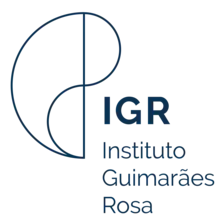 | |
| Formation | 2022 |
|---|---|
| Founder | Government of Brazil |
| Type | Cultural institution |
| Focus | Promotion of Brazilian Language and Culture |
Area served | Worldwide |
| Product | Brazilian cultural education |
| Website | https://www.gov.br/mre/en/subjects/culture-and-education?set_language=en |
The Guimarães Rosa Institute (Portuguese: Instituto Guimarães Rosa, abbreviated IGR) is an institution subordinated to the Brazilian diplomatic missions in each country, being the main instrument for the execution of the Brazilian cultural policy abroad.[1][2]
Formerly it was known as the Brazilian Cultural Center (Centro Cultural Brasileiro). [3] It was created based on institutions such as the Goethe Institute (Germany) and the Cervantes Institute (Spain). [4]
There are several Instituto Guimarães Rosa currently in Angola, Bolivia, Cape Verde, Chile, Colombia, Costa Rica, Dominican Republic, Ecuador, El Salvador, Finland, Germany, Guinea Bissau, Guyana, Haiti, Italy, Lebanon, Mexico, Mozambique, Nicaragua, Panama, Paraguay, Peru, São Tomé and Príncipe, South Africa, Spain, Suriname, the United States, Uruguay and Venezuela.[5][6]
The centers are also home to the CELPE-Bras exams.[7]
References
- ↑ São Tomé e Príncipe: Campanha com jeito de espetáculo, PlusNews news
- ↑ Moçambicano assume centro cultural brasileiro em Maputo, Agência Lusa news
- ↑ dc.mre.gov.br Archived July 19, 2011, at the Wayback Machine
- ↑ Jardim, Lauro (2022-02-04). "Surge o Instituto Guimarães Rosa". Lauro Jardim - O Globo (in Brazilian Portuguese). Retrieved 2023-06-29.
- ↑ "Brazilian Cultural Centers directions, Brazilian Ministry of Foreign Affairs website". Archived from the original on 2010-08-18. Retrieved 2010-04-01.
- ↑ Brazilian Cultural Centers directions, Brazilian Cultural Center Barcelona website Archived August 2, 2010, at the Wayback Machine
- ↑ Authorized institutions for the application of CELPE-Bras exams, as of 2010